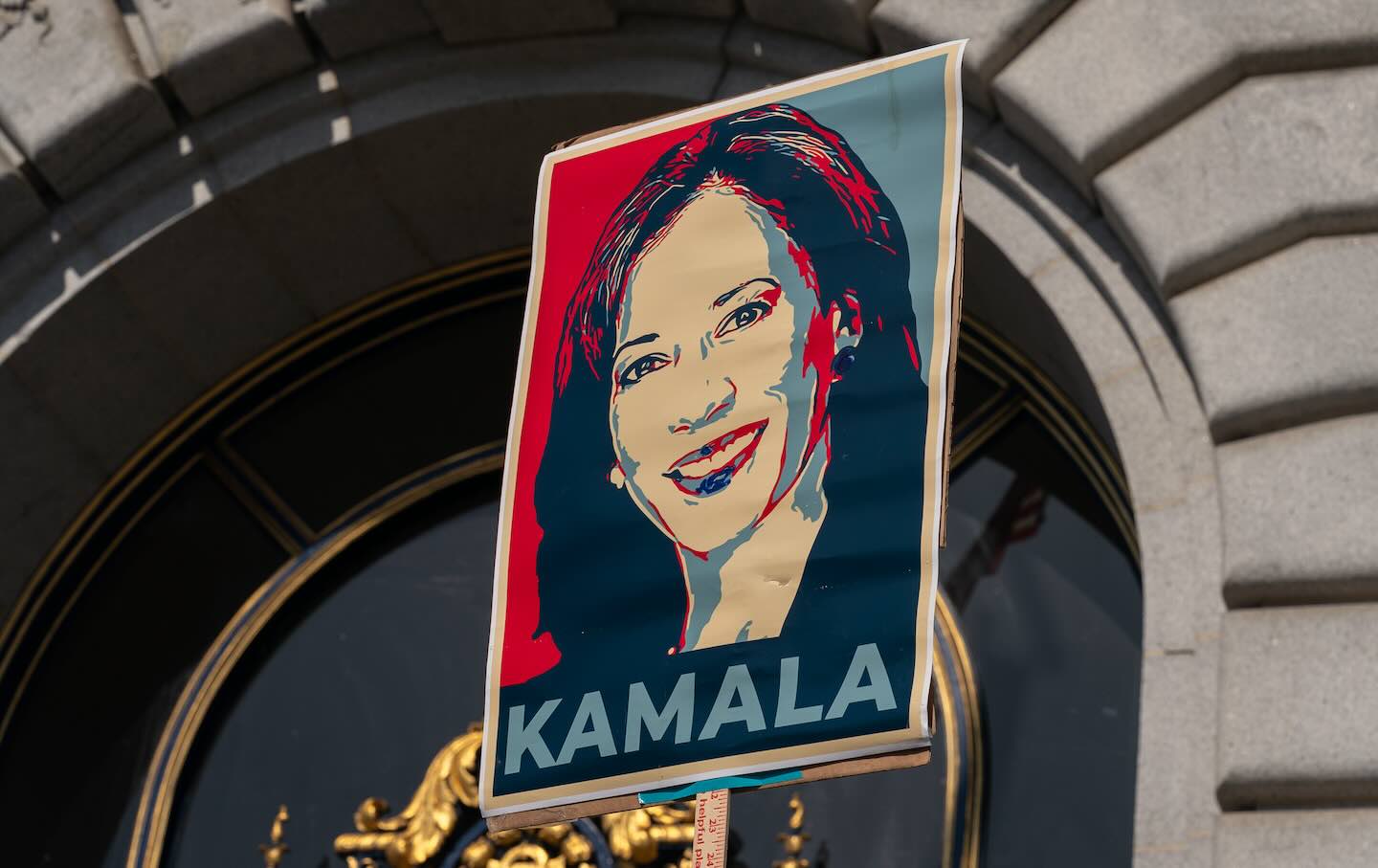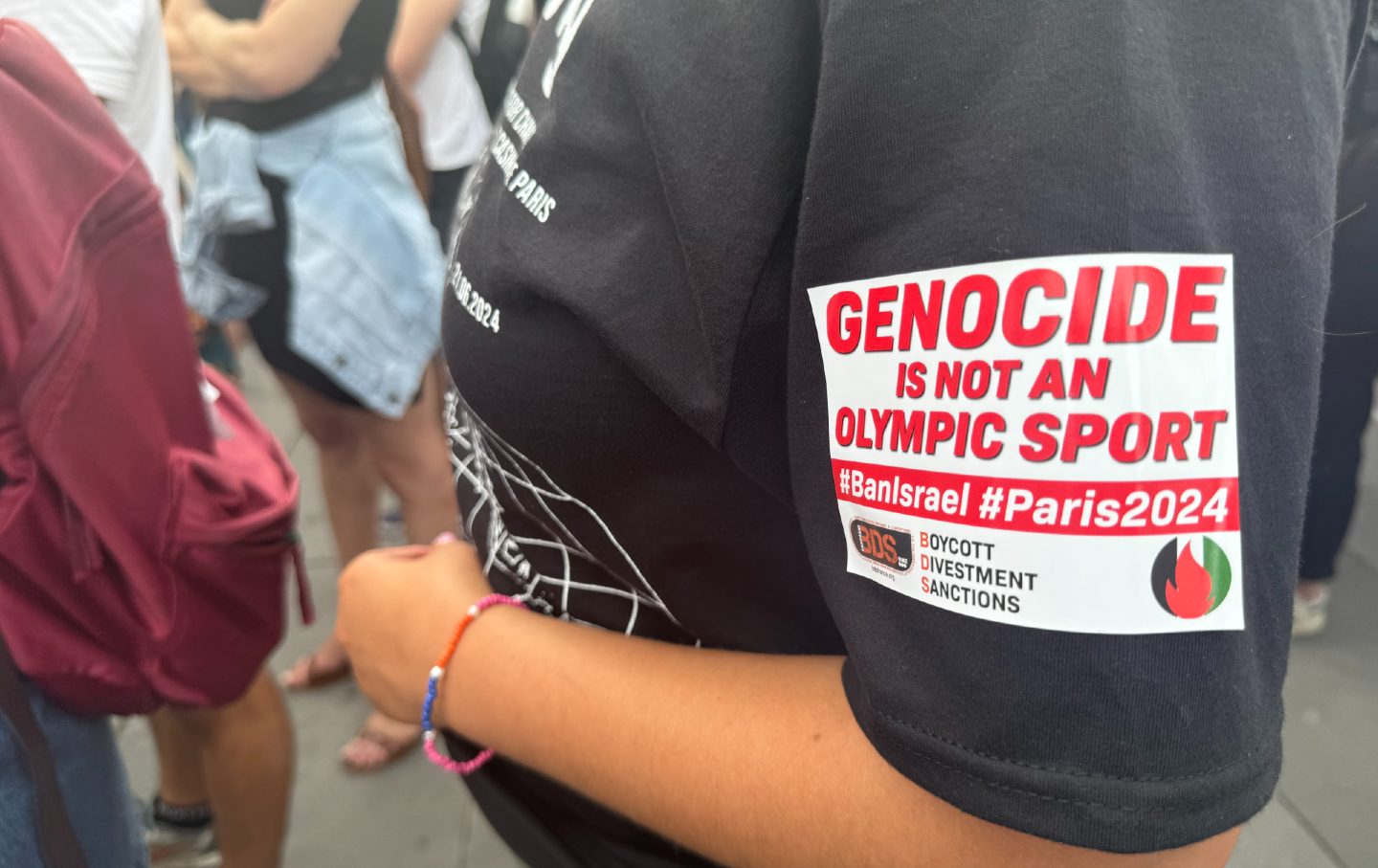The Supreme Court Rules That Cops Can Steal Your Stuff—as They Always Have
By a 6-3 vote, the conservative justices decided that there is no need for the state to provide a preliminary hearing in civil forfeiture cases.

A woman sits in her car, which police had seized for a crime she did not commit.
(Nam Y. Huh / AP Photo)“Civil asset forfeiture” is the legal euphemism for when the cops steal your stuff. In this country, if you are stopped or arrested, the police can take all the personal property you have on you and call it “incident to the arrest.” That property can include your phone or your legally purchased guns, and it almost always includes your car.
When cops decide to help themselves to your property, they can do it without a warrant, without securing a conviction, without even charging you with a crime. Once they’ve taken it, the cops then force people to engage in a long legal fight to get their stuff back. Often, the value of the property stolen by the government is less than the cost of lawyers needed to fight the government. There’s no right to public counsel when the cops steal from you, so most people can’t afford to fight them, never get their stuff back, and the cops end up selling it for profit.
Civil forfeiture is a booming business and has become a key source of income for some cities and entire states. According to “Policing for Profit,” a report from the Institute for Justice, federal, state, and local governments made $68.8 billion from civil forfeiture between 2000 and 2019.
Most people I know think that civil forfeiture should be unconstitutional as a point-and-click violation of the Due Process clause. The Fifth and Fourteenth Amendments both say that we should not be “deprived of life, liberty or property without due process of law.” Civil forfeiture is literally depriving people of their property with no process at all.
Unfortunately, most people I know are not on the Supreme Court. On Thursday, the six unelected Republicans who rule this country said that civil forfeiture can continue to happen so long as the government eventually provides a hearing, even if the hearing takes place long after the theft and most people can’t afford to appeal.
The case is called Culley v. Marshall and deals with two straightforward civil forfeiture examples from Alabama. Halima Culley loaned her car to her son, who was stopped and arrested while driving with marijuana. Lena Sutton loaned her car to a friend who was subsequently busted while driving with methamphetamines. Alabama cops seized both vehicles, even though they didn’t belong to the person driving them, and didn’t return them to their real owners even after they learned of their mistake. Instead, the cops made a civil forfeiture claim and attempted to keep Culley’s and Sutton’s cars.
A report from the Southern Poverty Law Center found that Alabama made $2.2 million in 2015 from stealing property through civil forfeiture, so the cops are fairly heavily incentivized to take property even when the owners are not guilty of anything. But according to alleged attempted rapist Brett Kavanaugh, Alabama’s grand theft auto operation is just fine.
Writing for a 6-3 majority (it was the usual split: all Republican justices in the majority, all Democratic justices in dissent), Kavanaugh reduced the issue to one of timing. The plaintiffs Culley and Sutton wanted the state to provide a “preliminary” hearing and force the police to justify stealing their cars. Kavanaugh said that the state already provides a “timely” hearing and said that all the plaintiffs wanted was to get their stuff back more quickly. He argued that the plaintiffs’ arguments were just “a backdoor argument for a more timely forfeiture hearing to allow a property owner with a good defense to recover her property quickly.”
As he does so often, Kavanaugh willfully missed the point. The plaintiffs want to stop the government from taking their property, not argue after the fact that the government should give it back. Remember, we’re talking about cars here. If the cops arrest somebody and take their car, then find out later that the car does not belong to the person they arrested, the normal (and constitutional, and basically decent) thing to do is return the car to its rightful owner. But instead of returning the cars to the people who own them, the police in these cases wanted to not only keep the cars but then force the owners to enter into litigation against the police to get the cars back. That’s not a timing issue: That’s a mugging issue.
Think about it this way: If the cops arrest somebody and throw them in jail, the accused is entitled to a preliminary hearing where the government has to explain to a court why that person should be kept in jail and denied bail. That hearing is different from the trial to convict and sentence the person. As a threshold issue, cops have to explain why they locked somebody up. The same constitutional rule should apply to a person’s property. If the police jack a car, they should be forced to explain to a court why they’re keeping the car instead of releasing the car on its own recognizance (just pretend that the car is Lightning McQueen).
In dissent, Justice Sonia Sotomayor (joined by Justices Elena Kagan and Ketanji Brown Jackson) made a critical distinction between criminal forfeiture and civil forfeiture. It’s one thing if the property involved is the subject of crime. If the car itself is stolen, or if the car is a getaway vehicle that may contain blood or other evidence of criminal activity, one can understand why the cops might need to keep it. Criminal asset forfeiture can also be a form of punishment—for instance, in the unlikely event that a Wall Street type is ever forced to disgorge illegal or fraudulently obtained profits.
Civil forfeiture, however, requires no crime. Sotomayor notes that 80 percent of civil forfeiture cases “are not accompanied by any ultimate criminal conviction.” She further argues that unchecked civil forfeiture can also lead to false pleas and settlements from property owners desperate to just get their stuff back. She writes:
Loss of a car not only “takes away one’s ability to commute” but also imposes a barrier to “buy[ing] necessities, access[ing] healthcare, and visit[ing] family members, pharmacies, grocery stores, hospitals, and other essential services.”… Given these burdens, low-income communities are also the most vulnerable to pressure from unchecked prosecutors, who can use coercive civil forfeiture processes to extract settlement money from innocent owners desperate to get their property back.
Kavanaugh was unmoved by these arguments, noting only that states are free to rein in civil forfeiture abuses through legislation but the Constitution does not require them too. It’s worth noticing that the Republicans who claim to care so much about private property and protecting citizens from government “theft” when it comes to environmental regulations or tax laws have no problem allowing states to steal cars from innocent citizens who aren’t even charged with crimes.
For what it’s worth, while Kavanaugh is probably off at a Buffalo Wild Wings somewhere wondering if Alabama can use its forfeiture funds to hire better offensive coordinators for their football programs, Justice Neil Gorsuch seemed at least to struggle with his intellectual hypocrisy. Gorsuch wrote a concurring opinion (joined by Justice Clarence Thomas) where he declared both the majority and the dissent to be right.
Oh, he came down on the side of the Republican majority of course, because even if both sides are right, Gorsuch usually thinks the Republican position is more right. And, because this is Gorsuch we’re talking about, he treated us in his opinion to an archaic, intellectually masturbatory discussion of the law of “deodand”—which (I’ve now been forced to learn) was the 11th-century English equivalent to civil forfeiture: Property that caused someone’s death was forfeited “to God” or “the Crown,” but usually the local lord who needed some cash.
Popular
“swipe left below to view more authors”Swipe →Luckily, Gorsuch didn’t seem fond of this particular 11th-century law (probably because he couldn’t figure out how to use it to hurt women or Black people), so the legal upshot of Gorsuch’s concurrence was this musing:
Why does a Nation so jealous of its liberties tolerate expansive new civil forfeiture practices that have “led to egregious and well-chronicled abuses”?… In this Nation, the right to a jury trial before the government may take life, liberty, or property has always been the rule. Yes, some exceptions exist. But perhaps it is past time for this Court to examine more fully whether and to what degree contemporary civil forfeiture practices align with that rule and those exceptions.
What I think Gorsuch is saying is that if some kind of carefully crafted lawsuit came before the court, Gorsuch (and Thomas) would declare at least some aspects of civil forfeiture unconstitutional. I don’t know what that lawsuit would look like. In this case, Culley and Sutton were asking the court to impose a process, that of a “preliminary” hearing, on the states, but we already know that justices like Gorsuch and Thomas don’t like for the courts to do anything to proactively stop the states from violating the Constitution or civil rights (unless the states are trying to keep guns out of the hands of mass shooters—then they think the Constitution gets violently angry). They were never going to go for this one, theft of private property be damned.
But perhaps a lawsuit challenging the asset seizure itself instead of the timeliness of the hearing would tickle Gorsuch’s fancy. I’m sure he could find something from Beowulf about the proper procedure for stealing a golden cup.
In the meantime, the cops will continue to rake in billions of dollars from taking people’s stuff. As usual, Republicans have rendered the Constitution impotent in the face of any two-bit criminal who happens to wear a badge instead of a ski mask.
Thank you for reading The Nation
We hope you enjoyed the story you just read, just one of the many incisive, deeply-reported articles we publish daily. Now more than ever, we need fearless journalism that shifts the needle on important issues, uncovers malfeasance and corruption, and uplifts voices and perspectives that often go unheard in mainstream media.
Throughout this critical election year and a time of media austerity and renewed campus activism and rising labor organizing, independent journalism that gets to the heart of the matter is more critical than ever before. Donate right now and help us hold the powerful accountable, shine a light on issues that would otherwise be swept under the rug, and build a more just and equitable future.
For nearly 160 years, The Nation has stood for truth, justice, and moral clarity. As a reader-supported publication, we are not beholden to the whims of advertisers or a corporate owner. But it does take financial resources to report on stories that may take weeks or months to properly investigate, thoroughly edit and fact-check articles, and get our stories into the hands of readers.
Donate today and stand with us for a better future. Thank you for being a supporter of independent journalism.
More from The Nation

Lewis Lapham Salvaged From History What Was Useful, Beautiful, and True Lewis Lapham Salvaged From History What Was Useful, Beautiful, and True
Writer Lewis H. Lapham, longtime editor of Harper’s Magazine and the founder of Lapham’s Quarterly, died in Rome. He was 89.

Working Families Party Nominates Kamala Harris Ahead of the DNC Working Families Party Nominates Kamala Harris Ahead of the DNC
The nomination gives the presumptive Democratic presidential nominee a second ballot line in New York and a big organizational boost from WFP and its allies.

Kamala Harris Will Shift on Gaza Only if We Make Her Kamala Harris Will Shift on Gaza Only if We Make Her
The vice president’s ascension provides an opening for a new approach to the horror in Palestine. But it won’t happen without sustained political pressure.

Kamala Harris Is Ready for This Fight Kamala Harris Is Ready for This Fight
In a matter of days, Vice President Kamala Harris cleared the path for the Democratic presidential nomination.
Editorial / John Nichols for The Nation

The Paris Olympics Are Kicking Off With Protests The Paris Olympics Are Kicking Off With Protests
“The Olympic Games are profoundly disrupting the lives of French people,” the protesters wrote in a joint statement.“The question then arises: Who benefits from the Games?”

J.D. Vance’s Hatred of Cat Ladies Is Weirder and More Dangerous Than You Think J.D. Vance’s Hatred of Cat Ladies Is Weirder and More Dangerous Than You Think
Patriarchy, plutocracy, and ethnonationalism fuel the vice-presidential candidate’s bizarre slur.


